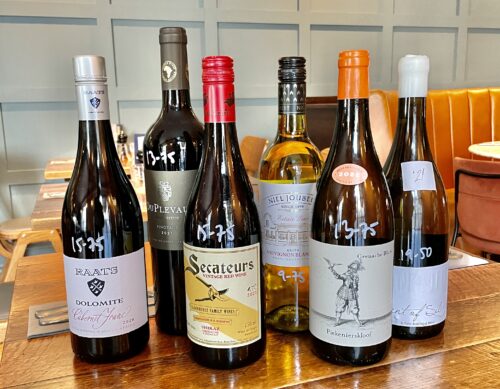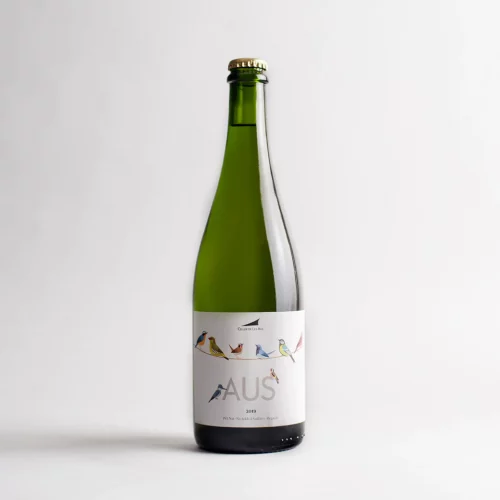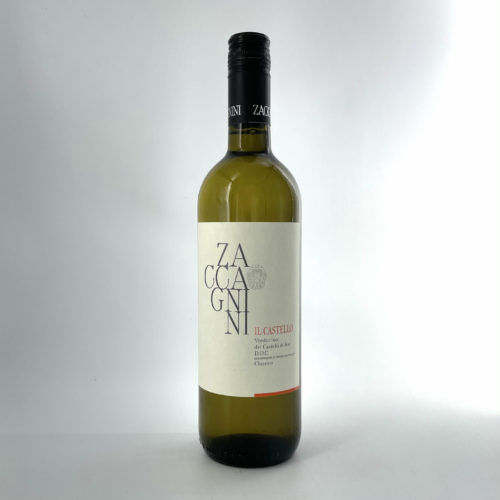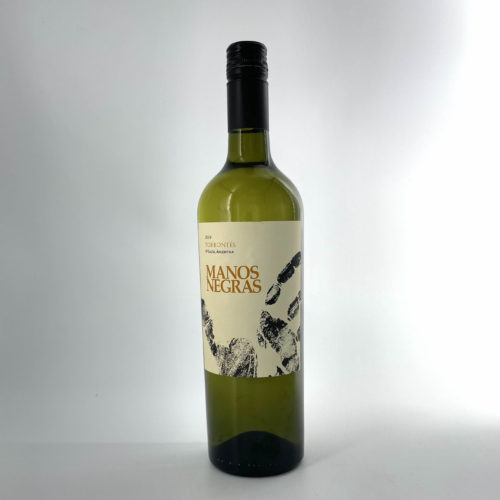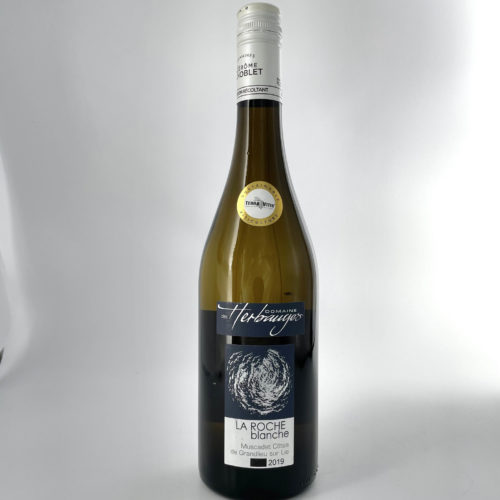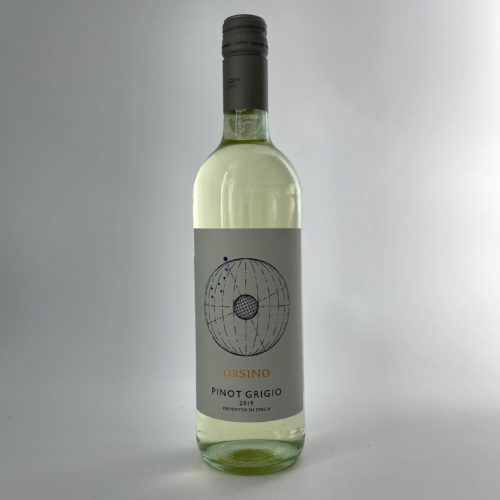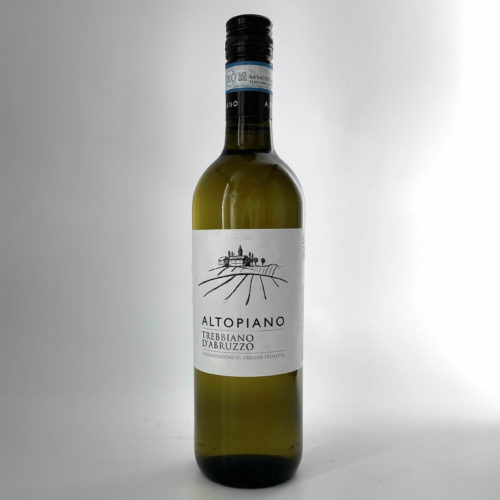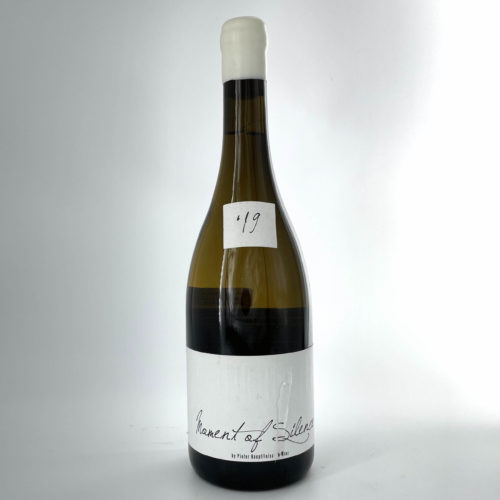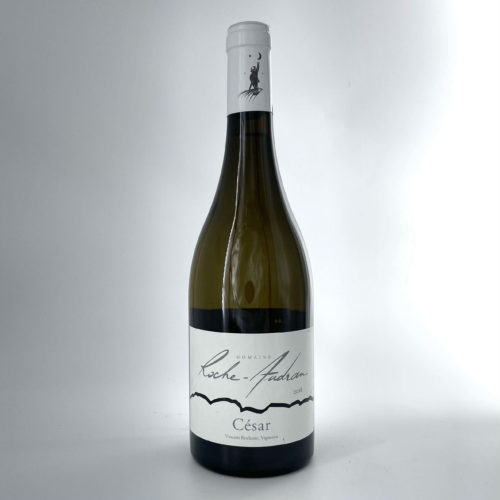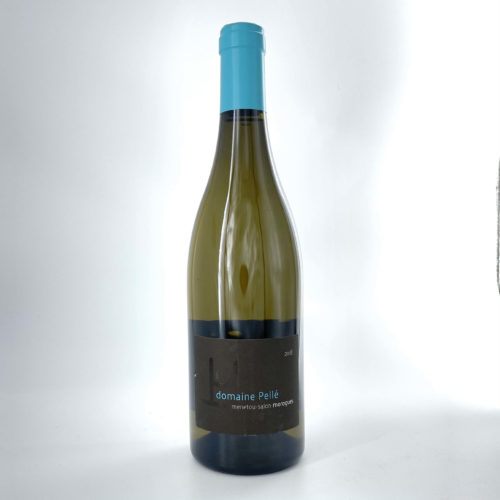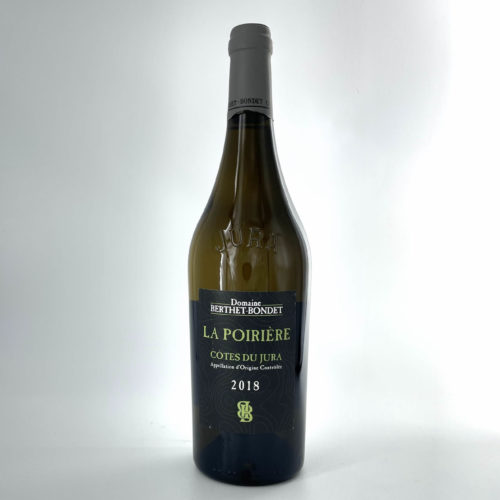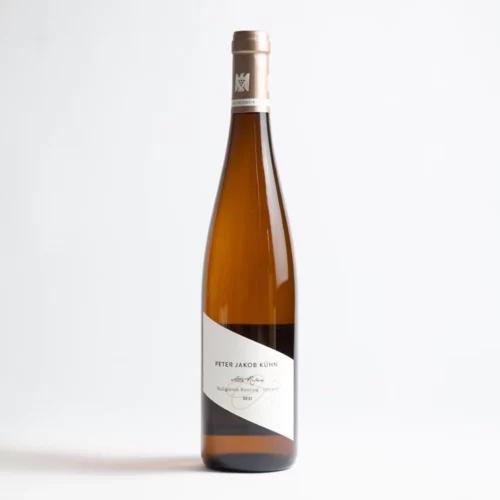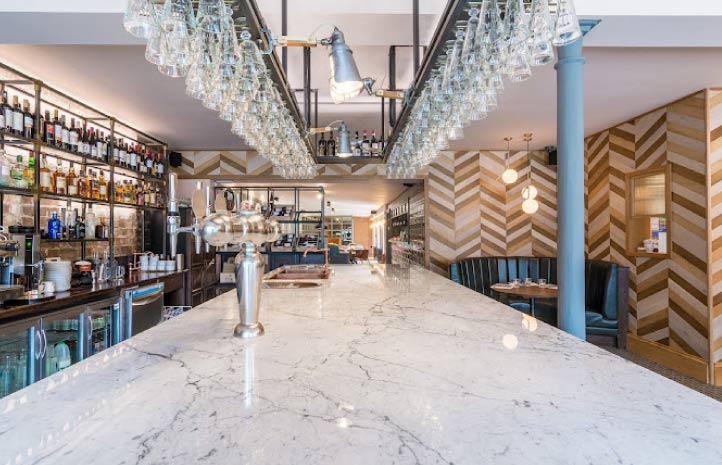South African Mixed Case
A mixed case of 6 South African wines – 3 reds and 3 white
- Sauvignon Blanc ‘Enita’, Niel Joubert, Paarl
- Grenache Blanc, Piekenierskloof, Swartland
- Chenin Blanc ‘Moment of Silence’, Blankbottle, Wellington
- Pinotage, Du Plevaux, Stellenbosch
- Red Secateurs, Badenhorst, Swartland
- Cabernet Franc, Raats, Stellenbosch
‘Aus’ Pet-Nat, Celler de les Aus, Allela, Spain
Located on the same site as Alta Alella is Celler de les Aus, headed by Mireia Pujol-Busquets – the daughter of Josep Maria. Mireia has already established a reputation as one of the most exciting young winemakers in Europe and, as well as assuming many of the roles from her father in the Alta Alella operation, she has established her own micro-project, producing natural wines without the addition of any sulphites. The small yet striking winery is filled to the brim with vessels of all shapes and sizes as Mireia continually experiments in an effort to produce wines that are as pure a representation of the Alella terroirs as possible. hak
Verdicchio dei Castelli di Jesi Classico, Zaccagnini, Marche, Italy
On the opposite coast to Tuscany lies the less well known, but no less beautiful, region of Marche. This is where you will find the family run Zaccagnini winery, established by two brothers.
Playing to their strengths, they have focused on the local grape Verdicchio, and the results are spectacular. Their range of three Verdicchios are as distinctive and individual as you could wish for, with each wine having its own personality and textural signature. All are benchmark examples of this lesser known region on the East coast. Whilst they have been working organically for a few years, from the 2020 vintage, the wines are being certified as organic.
Torrontes, Manos Negras, Salta, Argentina
Alejandro Sejanovich is arguably Argentina’s most knowledgeable viticulturist, working as vineyard director for Bodega Catena Zapata for 16 years, he pioneered high altitude vineyard planting and conducted ground breaking research on Mendoza Malbec clones.
Manos Negras focuses on latitude winemaking, planting Torrontes in the northern stretches of Cadayate in Salta, Pinot Noir in the southern-most region of Neuquen in Patagonia and cultivates 50 year old Malbec vines in the prized Altamira appellation in the Uco Valley.
Muscadet sur Lie, Domaine des Herbauges, Cotes de Grandlieu, Loire valley, France
This family estate has been in production since 1864 and is now the largest single estate in the region.
The vineyards benefit from an exceptional microclimate; the warmth of the Atlantic brings spring early, while the huge Lac de Grandlieu acts like a giant storage heater through growing season. Fourth generation winemaker, Jérôme is committed to the sustainability of the vineyards as well as to the health of the vineyard workers he has even grassed over 100% of the vineyards to reduce the vigour of the vines and to soak up rain at harvest. Each terroir of Domaine des Herbauges expresses its own subtle nuances, and reveals specific particularities and characteristics of the AOC Muscadet Côtes de Grandlieu Sur Lie appellation.
Pinot Grigio Orsino, Veneto, Italy
Orsino Pinot Grigio is from the volcanic soils of Veneto. Meaning “little bear,” it depicts a constellation of stars that overlook and protect the vineyards by night.
The vineyards are located on the hillsides and planted on clay soil. Cultivated in the espallier system and pruned Guyot style. Grapes are harvested at dawn and late in the day to maintain fresh acidity. Clusters picked during the cooler hours remain intact and there is no risk of skin fermentation during transport.
Trebbiano Altopiano, Feudo Antico, Abruzzo, Italy
Feudo Antico was created on a small plot of land in the heart of Abruzzo. It is in Italy’s smallest DOP and the first designation of its kind in Abruzzo.
Starting from the 2013 vintage, all wines are Magis certified, the most advanced project for the sustainability of wine production in Italy. Currently their 15 hectares are cultivated using native varieties producing limited yields to ensure quality is retained. Clearly they highly value the land they work and this attitude is continued in the winery where the fruit and wine come into contact with no wood whatsoever, only concrete and glass. This guarantees the purity of the fruit, and its flavours, are conveyed from the vineyard direct to the glass.
Blankbottle Moment of Silence, Wellington, South Africa
From critically-acclaimed South African winemaker Pieter H. Walser. Pieter explains when he first established the basic premise of the concept. “In 2004, a lady came to my house to buy wine. She asked for anything but Shiraz. “I don’t drink Shiraz”, were her exact words. I poured her a glass of wine. She loved it and bought 3 cases. It was a straight Shiraz. It’s a fact – we do judge the book by its cover.” And so was born the idea of a range of wines that has no limitations when it comes to style, vintage, area or grape varieties
Cotes du Rhone Cuvee Cesar, Domaine Roche-Audran, Southern Rhone, France
Vincent Rochette comes from a long line of grape growers rather than winemakers. In 1998, he bucked that trend by investing in a cellar and the necessary equipment to allow him to vinify his own grapes, which for five generations had been sold to other winemakers in the area. Vincent is an ardent believer in the benefits of biodynamics, fully converting his estate to follow that philosophy in 2006. He uses only natural products in the vineyard and carries out all his work in keeping with the cosmic cycles of the earth, not only among the vines but also in the cellar
Mentou Salon Morogues, Domaine Pelle, Loire Valley, France
For a long time, Menetou Salon was viewed as the poor relation of nearby Sancerre. Producers such as Domaine Pellé have ensured that is no longer the case. Anne and Paul-Henry Pellé currently preside over the family estate, the 4th generation of the Pellé family to tend vines here. They farm in a truly sustainable manner and aim to communicate the unique expression of the Menetou Salon terroirs in each bottling. Their ‘Morogues white’ is a blend of 7 different parcels from the highest slopes of the appellation. This location ensures the vines, which are rooted in Kimmeridgian marl soils, are exposed to cool temperatures coupled with long sunshine hours
Chardonnay La Poiriere, Domaine Berthet Bondet, Cotes de Jura, France
Jean Berthet-Bondet has been working his land since 1984.
With a humble 15 hectares of 30 year old vines, this estate may well be small but it is steeped in history and heritage. Half of Jean’s land is in the Château Chalon appellation which is home to the Savagnin grape, renowned for making the revered Vin Jaune. A unique wine that has seen a resurgence of popularity in recent years, but has always been appreciated by the knowledgeable few.
Hallgarten Riesling Trocken, Peter Jacob Kuhn, Rheingau, Germany
It was no surprise Peter Jakob Kuhn had been voted German winemaker of the year for 2016 – his wines are some of the best examples of German produce we have tasted. The Kühn estate was founded in 1786 by Jacobus Kühn and has remained under the watchful eye of his family ever since. Now, along with his wife Angela, and their son Peter Bernhard (who, during his training completed a stage with our friends at Domaine Zind-Humbrecht), cultivates the family land biodynamically, producing a range of Rieslings which showcase the Rheingau terroir. A fervent believer in the ecological benefits of biodynamic farming, Peter is at present, the only producer to follow biodynamic principles in the Rheingau. His wines are made in a fearless manner, with as much as possible left to nature’s own course. His experimental cuvées include wines which have undergone extra-long lees ageing or been fermented and aged in amphora vessels. Peter is a producer we are delighted to introduce to you all and we firmly believe that his wines will become iconic in the very near future.

